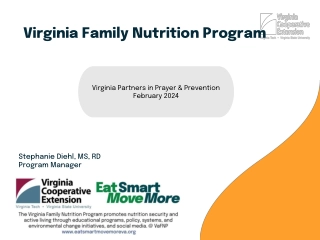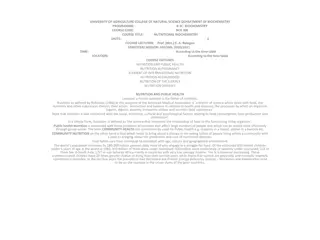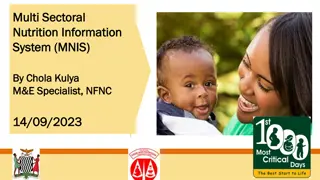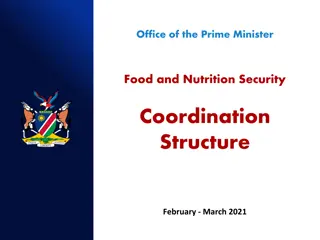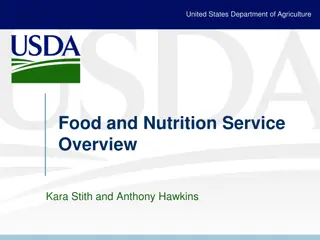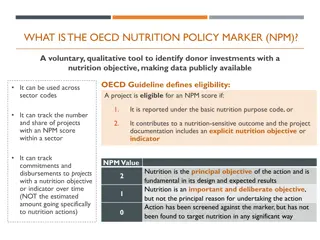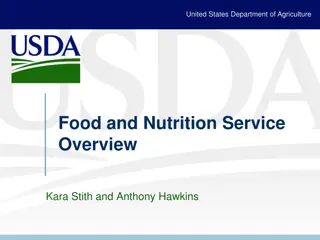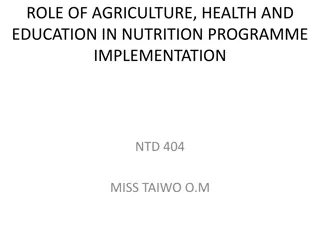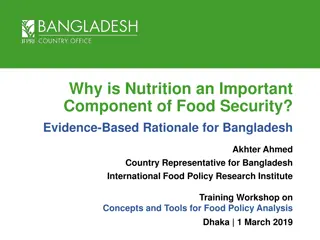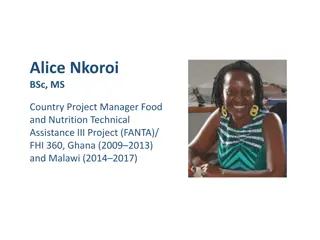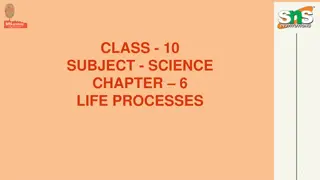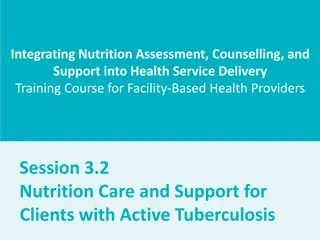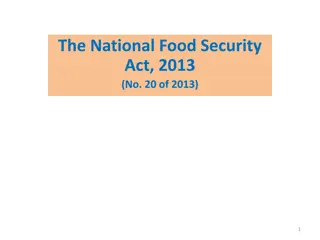Fundamentals of Food and Nutrition Course Overview
Gain insight into the realm of food and nutrition through this comprehensive course. Explore the basics of nutrients, food science, and malnutrition while preparing for various career paths in the food industry, health sector, or NGOs. Modules cover food groups, cooking methods, nutrient functions, and practical food preparation. Enhance your understanding of nutrition's crucial role in human well-being and societal development.
Download Presentation

Please find below an Image/Link to download the presentation.
The content on the website is provided AS IS for your information and personal use only. It may not be sold, licensed, or shared on other websites without obtaining consent from the author.If you encounter any issues during the download, it is possible that the publisher has removed the file from their server.
You are allowed to download the files provided on this website for personal or commercial use, subject to the condition that they are used lawfully. All files are the property of their respective owners.
The content on the website is provided AS IS for your information and personal use only. It may not be sold, licensed, or shared on other websites without obtaining consent from the author.
E N D
Presentation Transcript
, .. . -1 -1 : -1 Fundamentals of Food and Nutrition Syllabus
Fundamentals of Food and Nutrition Syllabus Nutrition has been recognized and given a special role in national development. Nutrition is the key to facilitate the study and enhance the quality of human life. This paper covers basic aspects of nutrients, food science, as well as open a vast understanding of the current spectrum of malnutrition,. This course equips the students for skill development, academic understanding, entrepreneurship, community role and employment in various fields of food industry, health clinics, NGOs, etc.
Objectives 1. To familiarize students with fundamentals of food, nutrients and their relationship to Health 2. To create awareness with respect to deriving maximum benefit from available food resources
Module 1 : Basic concepts in Food and Nutrition 1.1 Basic concepts used in study of food and nutrition: Food, Nutrients, Nutrition, Health, Malnutrition and Balanced Diet 1.2 Understanding relationship between food, nutrition and health 1.3 Functions of food Physiological, psychological, social and cultural
Module 2: Food Groups Selection and nutritional contribution of the following food groups: 2.1 Cereals 2.2 Pulses 2.3 Fruits and vegetables 2.4 Milk & milk products 2.5 Eggs 2.6 Meat, poultry and fish 2.7 Fats and Oils
Module 3: Methods of Cooking with advantages and disadvantages 3.1 Moist heat : Boiling, Steaming, Pressure cooking 3.2 Dry heat : Roasting, baking 3.3 Frying : Deep and Shallow frying 3.4 Microwave cooking
Module 4: Nutrients Functions, dietary sources and clinical manifestations of deficiency of the following nutrients: 4.1 Carbohydrates, lipids and proteins 4.2 Fat soluble vitamins-A, D, E and K 4.3 Water soluble vitamins Thiamine, Riboflavin, and vitamin C 4.4 Minerals calcium and iron
Practical 1. Weights and measures of food stuff. 2. Food preparation, understanding the principles involved, nutritional quality and portion size Beverages: Hot tea/coffee/ Milk shake/ lassi / fruit based beverages (Any One) Cereals: Boiled rice / pulao/ chapatti / paratha / puri / pastas (Any One) Pulses: Whole / dehusked (Any One) Vegetables: curries / dry preparations Milk and milk products : Kheer / custard or Meat, Fish and poultry preparations / Egg preparations: Boiled / poached / fried / scrambled / omelettes / egg pudding
3. Plan and prepare nutrient rich recipe of the following with nutritive value calculation. Calorie / Protein (Any One) Vitamin A / Vitamin C (Any One ) Vitamin B1 / Vitamin B2 (Any One ) Iron / Calcium


